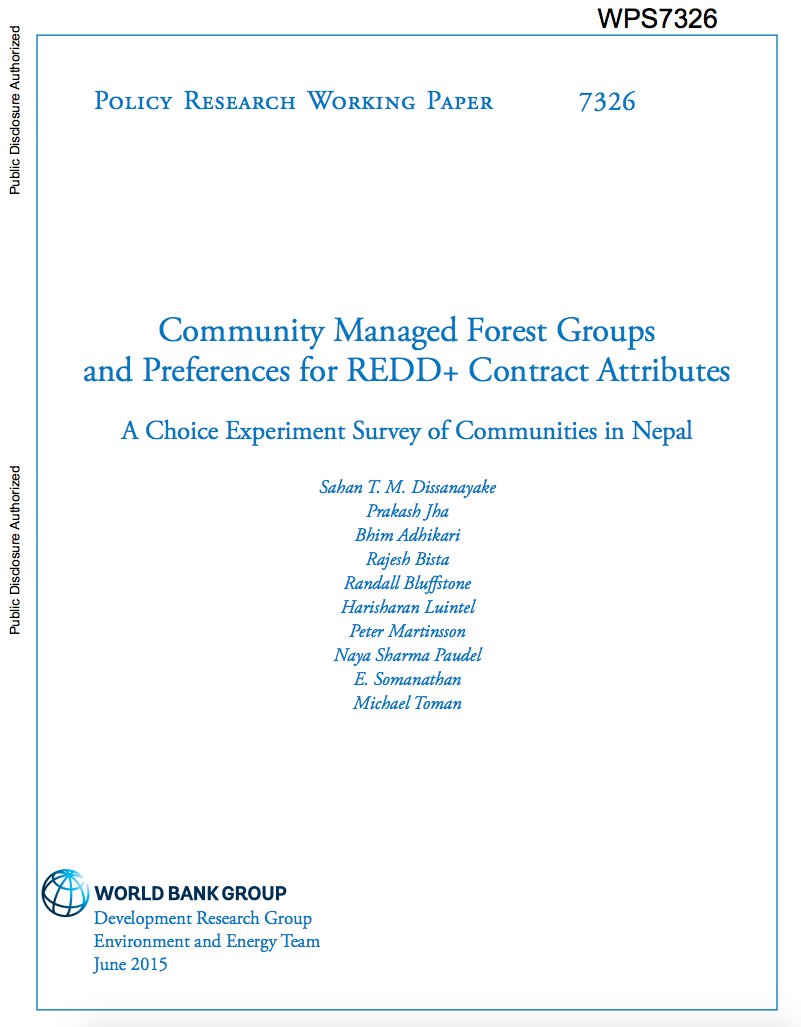The World Bank is a vital source of financial and technical assistance to developing countries around the world. We are not a bank in the ordinary sense but a unique partnership to reduce poverty and support development. The World Bank Group has two ambitious goals: End extreme poverty within a generation and boost shared prosperity.
- To end extreme poverty, the Bank's goal is to decrease the percentage of people living on less than $1.25 a day to no more than 3% by 2030.
- To promote shared prosperity, the goal is to promote income growth of the bottom 40% of the population in each country.
The World Bank Group comprises five institutions managed by their member countries.
The World Bank Group and Land: Working to protect the rights of existing land users and to help secure benefits for smallholder farmers
The World Bank (IBRD and IDA) interacts primarily with governments to increase agricultural productivity, strengthen land tenure policies and improve land governance. More than 90% of the World Bank’s agriculture portfolio focuses on the productivity and access to markets by small holder farmers. Ten percent of our projects focus on the governance of land tenure.
Similarly, investments by the International Finance Corporation (IFC), the World Bank Group’s private sector arm, including those in larger scale enterprises, overwhelmingly support smallholder farmers through improved access to finance, inputs and markets, and as direct suppliers. IFC invests in environmentally and socially sustainable private enterprises in all parts of the value chain (inputs such as irrigation and fertilizers, primary production, processing, transport and storage, traders, and risk management facilities including weather/crop insurance, warehouse financing, etc
For more information, visit the World Bank Group and land and food security (https://www.worldbank.org/en/topic/agriculture/brief/land-and-food-security1
Resources
Displaying 881 - 885 of 4907Pakistan
Pakistan’s trade indicators reflect low
outward orientation, concentration on low value added
activities and an undiversified product mix which out of
line with the fastest growing areas of world demand. The
export share of Gross Domestic Product (GDP) has remained
low and falling—fro
Handshake, No. 7 (October 2012)
This issue includes the following
headings: road: Brazils competitive drive; rail: speeding
toward tomorrow; logistics: MIT expert on why logistics
clusters matter; and interview: UPSs sustainable strategies.
Community Managed Forest Groups and Preferences for REDD+ Contract Attributes
A significant portion of the world’s
forests that are eligible for Reducing Emission from
Deforestation and Forest Degradation, known as REDD ,
payments are community managed forests. However, there is
little knowledge about preferences of households living in
community managed forests for REDD contracts, or the
opportunity costs of accepting REDD contracts for these
communities. This paper uses a choice experiment survey of
Investment Contracts for Agriculture
Private investment in agriculture in
developing countries, both domestic and foreign, has been on
the rise for nearly two decades. This paper focuses on
large-scale agricultural projects in developing countries,
involving the lease of farmland, which rose sharply after
the food crisis of 2008. It is important that such
investments are sustainable not only in the long term, but
also beneficial in the short term with minimal risks or
Financing Vietnam's Response to Climate Change
Climate-related hazards have adverse
effects on national growth and poverty reduction, affecting
the poor and several sectors of the economy simultaneously.
At its current rate of growth, Vietnam will become a major
global greenhouse gas (GHG) emitter. The Government of
Vietnam initiated the Climate Public Expenditure and
Investment Review (CPEIR) to advance an understanding of the
current policy and institutional architecture as well as to







